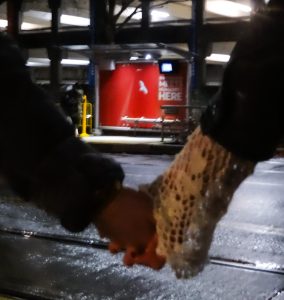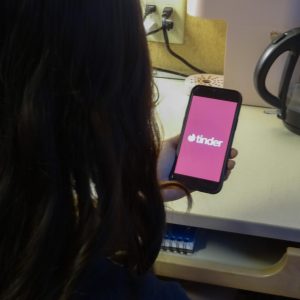 For many, college is a time to look for love. It’s the first place where students date and navigate romantic life as adults who don’t live with their parents. It’s a time of newfound freedom, exploration and excitement. Some want to date around, and others look for the person to spend their life with. For students at Seattle U, opinions are mixed on what the school has to offer in the field of dating.
For many, college is a time to look for love. It’s the first place where students date and navigate romantic life as adults who don’t live with their parents. It’s a time of newfound freedom, exploration and excitement. Some want to date around, and others look for the person to spend their life with. For students at Seattle U, opinions are mixed on what the school has to offer in the field of dating.
Looking on Fizz, an anonymous campus-based app where students share their thoughts on a variety of topics, can help grant a perspective.
In the past 24 hours, a post with 786 upvotes read, “trying to find love is exhausting,” and another with 735 upvotes replying to a poll asking “where are y’all meeting girls,” read “nowhere, it’s actually so rough out here.”
Masee Anderson, a third-year criminal justice major, thinks that dating at Seattle U is terrible. She feels as though it is often defined by cliques and social clubs.
“You have to be very involved in a specific thing. So like sports, all of my friends in sports have a boyfriend or a girlfriend on the exact same team they’re on, or in a club, like very active in a club, and if you’re not then you’re just kind of screwed,” Anderson said.
Anderson believes that this partially has to do with Seattle U being a small university. The size of Seattle U is influential in what dating looks like at the school in a variety of ways. With a limited circle of students compared to a larger university like the University of Washington, it is less likely that students will bump into someone new while wandering campus. In fact, it is more likely that you will cross paths with a failed fling or clumsy crush.
“I feel like it makes it a lot harder, because, as a small school, I feel like people are a lot more like ‘Oh my god what if I see them on campus somewhere? What if I live down the hall from them? What if they’re in the dining hall?’” Anderson said. “Everyone is more worried about second and third-order effects and ‘who will know,’ just in case.”
This fear of heightened social consequences was echoed by Nora Powell, a third-year history major.
“It could be that people are scared if the date doesn’t go well they’re going to have to run into that person over and over again,” Powell said.
The size of the school also plays a part in students dating off campus. Viewing college students in Seattle as a social group across campus lines, it makes sense that many Seattle U students date across campus to the University of Washington.
Danny Herre, a second-year environmental studies major, discussed the frequency of cross-campus or off-campus dating.
“Though there’s a small number of people at the school, there’s a huge number of people in Seattle. Lots of Seattle U students get in flings with UW people,” Herre said.
Powell has also seen the prevalence of off-campus relationships, stating that through dating apps and cross-campus social events, many students connect with UW students or people going to community college or trade schools
“People date more off campus,” Powell said. “I don’t think I know one couple that both of them go to Seattle U.”

Powell has noticed a similar trend of off-campus dating amongst Seattle U students, citing that she rarely meets a couple where both students are enrolled at Seattle U. Anderson added that, in addition to searching off campus, there is a prevalence of casual, short-term, or unofficial relationships.
“Most people are runners, they’re fast, they go from person to person,” she said. “It’s also called serial dating. That happens a lot, which, no judgment, it just does happen a lot.”
Herre spoke to a similar pattern, not simply serial dating, but a common instance of students being adverse, for one reason or another, to committed, monogamous relationships. The term “situationship” has become increasingly popular in pop culture to describe these sort of dynamics related to the current dating atmosphere.
“Lots of people don’t seem to want to commit to relationships, and instead have more situational friends-with-benefits type things,” Herre said.
Herre thinks that, due to students’ workload, they may not want to put much time and effort into a relationship. He also suspects that he feels people avoid relationships with a notion of “options” in mind, the idea that they don’t want to restrict themselves, and want more experiences with a variety of people.
Herre and Anderson both agree that social media and dating apps are likely contributing to a lack of commitment when it comes to dating. With increased exposure to a variety of people and young dating app users not necessarily looking or having the capacity to commit to dating, the idea of long-term relationships at this stage in life may be becoming less appealing.
While the conversations surrounding dating culture and what significant obstacles young people face to find love vary, Herre expressed that we can’t necessarily make any conclusive statements about the state of dating.
“It’s hard to know the larger story of dating at SU outside of the social circle you’re in,” Herre said.
Every student’s romantic endeavors at the school will vary based on their expectations, behavior and social circles. That being said, the current outlook toward romance on campus from students seems pessimistic.








